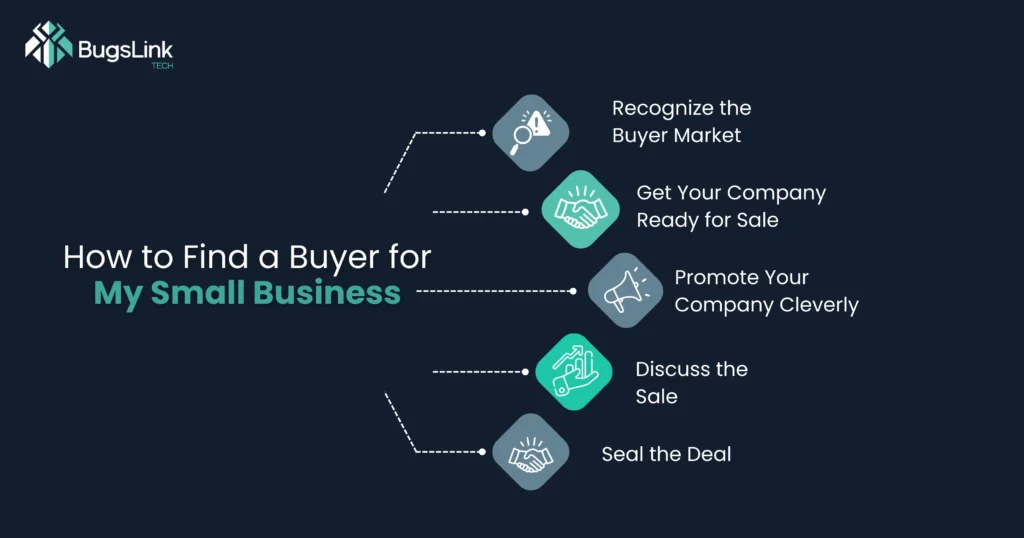The off-market businesses are significant, but it isn’t easy to quantify their market. Off-market sales are gaining interest among experienced investors and business owners, especially those nearing retirement age. The appropriate business developer can acquire these private transactions, often between trusted parties.
Off-market sales usually protect client privacy, prevent operational disruptions, or cater to specific buyers, ensuring brand protection and confidentiality. This blog discovery explains how to find off-market businesses for sales.
How to Find Off-Market Businesses for Sale
Discovering off-market companies can provide purchasers with many benefits. Because fewer purchasers are aware of these options, there is typically less competition, which allows for better terms and pricing.
Buying off-market will also enable purchasers to bargain directly with sellers, resulting in a more customized deal to meet each party’s specific demands.
Off-market transactions give sellers the advantage of confidentiality, lowering the possibility of upsetting coworkers, clients, or rival businesses. This strategy can facilitate a more seamless transition and assist in maintaining the company’s worth during the selling process.
Strategies to Find Off-Market Businesses for Sale
1. Networking
Networking is one of the best methods for locating off-market companies. Using professional networks can reveal opportunities not released to the general public.
Attending trade exhibits, conferences, and industry-specific events allows business owners to discuss possible sales with reliable contacts.
Developing connections with business brokers and sector specialists can also result in insider information on companies that are being sold off-market.
2. Direct Communication
Finding off-market companies can also be effectively accomplished through direct communication. This strategy entails contacting or cold emailing company owners who still need to list their enterprises but might be interested in selling.
Creating customized offers that cater to the seller’s unique requirements and interests can raise the possibility of a successful transaction. It might help you find business owners who quietly want to sell, as they might prefer a private transaction.
3. Engaging Business Brokers
Business brokers are crucial in off-market sales, providing access to networks and resources to identify potential sellers, thereby increasing the chances of finding suitable businesses.
4. Utilizing Online Marketplaces
Off-market businesses often exist on niche websites and forums, offering hidden listings and discreet transactions. Effective navigation and understanding of these platforms are crucial for spotting potential deals.
5. Consulting with Industry
Consulting with industry insiders, including consultants, experts, and former business owners, can help identify off-market businesses and generate potential sales before they become public knowledge.
6. Using Social Media
LinkedIn and other social media sites make it easier to connect with industry professionals, locate off-market enterprises, and encourage conversations among business owners regarding possible sales.
7. Partnerships
Joint ventures can provide off-market acquisition opportunities by partnering with other businesses or investors, allowing access to privately owned companies, and facilitating discreet purchases.
8. Attending Industry Events
Industry events provide networking opportunities with key players, reveal off-market business opportunities, and facilitate private discussions about potential sales opportunities.
Evaluate Off-Market Businesses
- Initial due diligence is essential before investing in an off-market business. Its crucial steps include gathering economic data, comprehending the business’s history, and evaluating its market position and possibility. Due diligence helps recognize possible issues and confirms an instructed decision.
- Valuation techniques are essential for determining a business’s growth potential and market situations. Standard valuation techniques, such as discounted cash flow analysis, asset-based values, and revenue multiples, can account for off-market transactions.
- Legal considerations are crucial to any enterprise dealing, mainly when trading with off-market deals. Comprehending agreements, contracts, and any legal responsibilities related to the company is vital. Hiring a business purchase lawyer can assist in navigating these complications and guaranteeing the deal is compliant with the law.
- Risk assessments help recognize potential dangers, like economic fluctuation, market transitions, or confidential drawbacks. Off-market trades often involve higher risks due to the lack of general details. Mitigating these threats through mindful planning, negotiation, and the involvement of experts can save your assets.
- Engaging experts, including accountants, lawyers, and consultants, is critical in evaluating off-market businesses. These professionals bring specialized knowledge and experience that can help ensure a successful transaction. Their insights can clarify complex issues and guide the due diligence process.
How to Find a Buyer for My Small Business

Recognize the Buyer Market
- Determine who might purchase it: private equity firms, other businesses, or individual investors.
- To customize your strategy, look at small business acquisition trends.
Get Your Company Ready for Sale
- Make sure all financial records are current and accurate.
- Increase profitability and streamline processes.
- Take care of any problems that can put off potential customers.
Promote Your Company Cleverly
- Employ private marketing techniques to protect privacy.
- Talk to reputable brokers to do focused outreach.
- Manage the selling process by engaging in off-market talks.
Discuss the Sale
- Recognize the reasons behind the buyer’s actions and state your expectations clearly.
- Be prepared to make concessions that will satisfy both sides.
- Organize the transaction to satisfy the requirements of the seller and the buyer.
Seal the Deal
- Complete the sale’s financial and legal details.
- Ascertain that all required paperwork is in order.
- Decide on the parameters and create a detailed transition plan for a seamless closure.
How to Find Potential Buyers for a Business
- Knowing who might be interested in buying your company is the first step in identifying the ideal target buyer.
- Identifying and gathering contacts interested in your company is the first step in creating a list of possible purchasers.
- Effective outreach to prospective customers requires tailored communications emphasizing your company’s benefits.
- Brokers for businesses can play a crucial role in bringing together buyers and sellers. They may take care of a lot of the legwork needed to sell and have access to an extensive network of possible buyers.
- Online directories provide a means of listing your company and covertly reaching many people.
- Connecting with colleagues in the field might be a great approach to locating possible customers.
- Through customized messaging, direct marketing aims to highlight your company’s distinctive value to prospective customers.
Related: Importance Of Technology in Small Business: A Complete Guide
Conclusion
Off-market businesses require strategic networking, direct outreach, and online platforms for purchasing and selling. Private negotiations and understanding buyer markets are crucial for successful transactions. Seeking expert advice ensures a smooth and beneficial process.
Build a buyer list and network, use online platforms, and leverage brokers to connect with potential buyers.
Locating off-market companies online might be challenging but feasible with forums, specialized websites, and social media networking.
Consider your company’s goals, market position, legal responsibilities, and financial soundness.
Off-market enterprises are not listed on a public marketplace but might be accessible to the right buyer through confidential talks.

